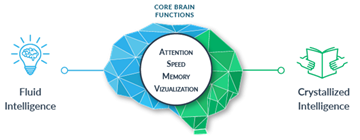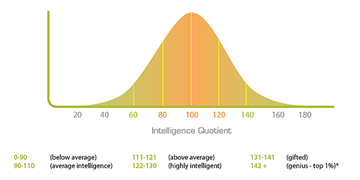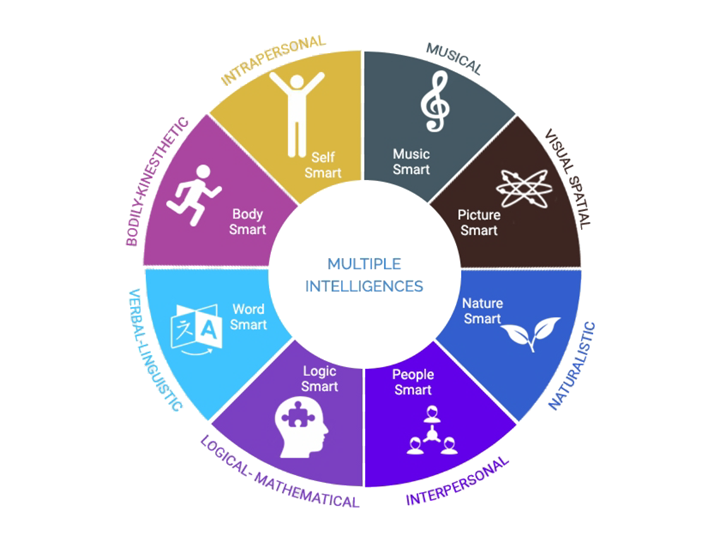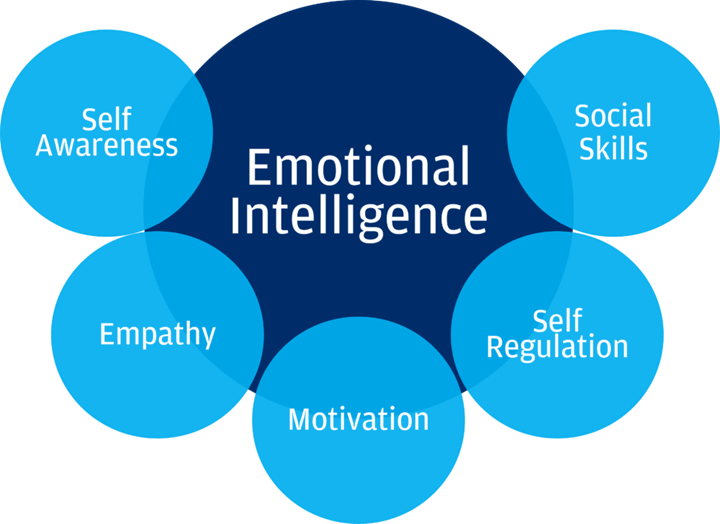Fluid Intelligence

Fluid Intelligence is the ability to reason abstractly and solve problems and is considered independent of learning, experience, and education.
Another word is the ability to solve problems and reason about things independent of previously existing knowledge.
When you encounter a new problem that cannot be solved with your existing knowledge, you must rely on fluid intelligence to solve it.
Specific cognitive skills associated with fluid intelligence tend to decline as people reach later adulthood.
Until recently, fluid intelligence was believed to be set in stone.
However, recent research suggests that brain training may improve certain aspects of fluid intelligence, even in older adults.
Crystallized Intelligence
Crystallized intelligence is the accumulation of knowledge, facts, and skills acquired throughout life.
It involves knowledge that comes from prior learning and past experiences.
For instance, situations that require crystallized intelligence include reading comprehension and vocabulary exams.
The more learning and experience you have, the more you build up your crystallized intelligence.
While fluid intelligence involves our current ability to reason and deal with complex information around us, crystallized intelligence involves learning, knowledge, and skills acquired over a lifetime.
While fluid intelligence decreases after adolescence, crystallized intelligence continues to increase throughout adulthood.
Crystallized intelligence is something that can be improved through learning.
The more accumulated knowledge you have, the more crystallized intelligence you will possess.
So if you are interested in improving this aspect of intelligence, furthering your education formally or informally will help.
IQ Score
IQ tests have a mean score of 100 points and a standard deviation of 15 points. What does this standard deviation mean?
It means that 68 percent of the population score an IQ within the interval 85-115.
And 95 percent of the population scores within the interval 70-130.
These labels are often given for IQ scores:
- 1 to 24: Profound mental disability
- 25 to 39: Severe mental disability
- 40 to 54: Moderate mental disability
- 55 to 69: Mild mental disability
- 70 to 84: Borderline mental disability
- 85 to 114: Average intelligence
- 115 to 129: Above average; bright
- 130 to 144: Moderately gifted
- 145 to 159: Highly gifted
- 160 to 179: Exceptionally gifted
- 180 and up: Profoundly gifted

Just as having a high IQ doesn't ensure success, having an average or low IQ doesn't ensure failure or mediocrity.
Other factors such as hard work, resilience, perseverance, and overall attitude are essential pieces of the puzzle.
There are measures you can take to increase IQ, but even if you gain a few IQ points, that doesn't necessarily make you smarter in ways that matter for a rewarding, successful life.
So there is little need to stress over your IQ score. Instead, focus on improving your overall intelligence, brain health, and brain fitness.
Even if you take active measures to increase your IQ, IQ scores tend to stay stable over a lifetime. In contrast, it can reasonably quickly and dramatically increase your intelligence and cognitive abilities.
Multiple Intelligences
many theories aim to define the various kinds of intelligence.
One of the most recent theories of intelligence that are popular with the public but controversial among psychologists is the theory of Multiple Intelligences as proposed by Harvard psychologist Howard Gardner.
Howard Gardner first outlined Multiple Intelligences Theory in his 1983 book "Frames of Mind: The Theory of Multiple Intelligences," He suggested that all people have different kinds of "intelligence."
To capture the full range of abilities and talents that people possess, Gardner proposed eight intelligence. He suggested possibly adding a ninth, known as "existentialist intelligence."

Gardner theorizes that people do not have just an intellectual capacity but have many kinds of intelligence, including musical, interpersonal, spatial-visual, and linguistic intelligence.
While someone might be influential in a specific area, such as musical intelligence, they most likely possess various abilities.
For example, an individual might be vital in verbal, musical, and naturalistic intelligence.
One common misconception about multiple intelligences is that it means the same thing as learning styles.
Instead, multiple intelligences represent different intellectual abilities.
Learning Styles
According to Howard Gardner, learning styles are how an individual approaches various tasks.
They have been categorized in several different ways -- visual, auditory, and kinesthetic, impulsive and reflective, right brain and left brain, etc.
Gardner argues that learning styles do not contain clear criteria for defining a learning style, where it comes from, and how it can be recognized and assessed.
He phrases learning styles as "a hypothesis of how an individual approaches a range of materials."
Everyone has all eight types of intelligence listed above at varying levels of aptitude -- perhaps even more that are still undiscovered, and all learning experiences do not have to relate to a person's most vital area of intelligence.
For example, if someone is skilled at learning new languages, it doesn't necessarily mean they prefer to learn through lectures.
Someone with high visual-spatial intelligence, such as a skilled painter, may still benefit from using rhymes to remember information.
Learning is fluid and complex, and it's important to avoid labeling students as one type of learner.
Gardner states, "When one thoroughly understands a topic, one can typically think of it in several ways."
Emotional Intelligence

Emotional Intelligence, or emotional quotient (EQ), is defined as an individual's ability to identify, evaluate, control, and express emotions.
EQ is the "ability to reason with emotions validly and to use emotions to enhance thought."
People with high EQ usually make great leaders and team players because they understand, empathize, and connect with the people around them.
They can manage emotions, use them to facilitate thinking, understand emotional meanings, and accurately perceive others' feelings.
EQ is a good indicator of success in the workplace and is used to identify leaders, good team players, and people who best work by themselves.
EQ is partially determined by how a person relates to others and maintains emotional control.
Continue Lifelong Education
Stay in school if you are a teen or young adult. Students who stay in school longer have higher IQs.
Because it exposes you to new information and problems to solve, going to school raises your IQ by several points a year.
Researchers have shown that for each year of schooling completed, there is an IQ gain of approximately 3.5 points.
Continuing your education does not necessarily mean just formal education.
Being open to new experiences and seeking out new things to do and learn is a personality trait associated with higher intelligence.
You might want to resume the music training you started as a child.
The brain-enhancing benefits of music lessons taken during childhood can follow into adulthood and last a lifetime.
The benefits of visual arts programs are equally impressive.
Art lessons improve brain plasticity, fluid intelligence, IQ, and attention in adults and children.
Get Physical Exercise
Physical exercise promotes the flow of oxygen, glucose, and nutrients to your brain.
It’s also one of the best ways to stimulate neuroplasticity, the brain’s ability to alter its structure and function.
Brain plasticity is associated with increased intelligence and larger brain volume.
Even as little as one 30-minute exercise session will enhance brain plasticity.
A study that involved over one million young men linked physical fitness with higher IQ.
Do Sprints
The neuroscience is clear: aerobic exercise is perfect for your brain.
Working out raises your IQ far more than playing an online brain game.
Plus, a Swedish study proved that cardiovascular fitness could raise your verbal intelligence by 50%.
Maria Aberg, who led the study, said, "Increased cardiovascular fitness was associated with better cognitive scores.
In contrast, muscular strength was only weakly associated with intelligence."
So if you want to be smarter, don't just lift; make sprints.
Get your Sleep
Insomnia affects roughly half of all adults. Regularly not getting enough sleep undermines your brain's long-term health and function.
It can also do some serious damage to your IQ.
According to Loughborough University's Sleep Research Centre, every hour short of the recommended eight hours per night can knock one point off your IQ.
They've issued a report that pulls no punches.
It concludes that regularly losing two hours of sleep per night can result in a person with an average IQ becoming "borderline retarded."
Meditate
Practicing meditation increases learning ability, memory, and problem-solving skills.
Meditation makes you more efficient at processing information, so it should be no surprise that it can boost IQ.
One study found that those who meditated using brainwave training experienced a remarkable 23% increase in IQ.
Play Dual N-Back
Dual n-back is the first brain exercise proven to raise a player’s general level of intelligence. In addition, increasing working memory capacity can boost your IQ.Try Neurofeedback
Biofeedback is a technique that teaches you to manage functions such as heart rate and brainwave activity that are usually not under your control.
Neurofeedback is a type of biofeedback that works by measuring brainwave patterns.
When adults and children with attention deficit disorder (ADD) received two neurofeedback sessions per week, the average IQ gain was 12 points.
Do the Mensa Workout
It would be best if you scored in the 98th percentile on an approved IQ test to join Mensa.
But anyone can take Mensa's 30-minute brain workout.
You can try it for free online at Mensa Workout.
Play Chess
There's a reason chess has been played for centuries and by royalty.
An intricate and complex game, it develops your problem-solving skills, improves your concentration and stimulates both sides of the brain, which helps strengthen your corpus callosum.
The corpus callosum is part of the brain that connects the two hemispheres.
Experts theorize that Einstein was so brilliant because he was particularly well-developed.
He could access his entire brain simultaneously instead of only one or the other part.
According to a study out of Venezuela, children who took chess classes for 14 weeks significantly increased their IQ.
Another 2003 study out of Flinders University in Australia came to the same conclusion: participants who played chess demonstrated improved IQ levels.
Learn a new Language
According to neuroscience, learning a foreign language makes your brain grow.
Because you're navigating a new set of complex rules (such as grammar different from your native tongue), it forces cortical thickening and increases the volume of your hippocampus.
In plain language, that means you're causing the language centers in the brain to expand, which eventually helps with other language tasks like negotiating, reading, and problem-solving.
Again, this doesn't have to take a long time.
Download Duolingo for free and start learning any foreign language in as little as ten minutes daily.
Learn an Instrument
Learning to play music is the equivalent of giving your brain a full-body workout.
This has been proven in studies using FMRI scans.
Playing an instrument lights your brain on intellectual fire and impacts math and spatial reasoning skills.
It’s not for no reason the wealthy almost universally require their children to learn a classical instrument whether they like it or not.
Carve out 30 minutes weekly to take a lesson and release your inner rock star.
Eat a Diet Rich in Unprocessed Food
If you want your brain to work its best, feed it high-powered fuel.
Some of the best foods for the brain include berries, walnuts, avocado, eggs, olive oil, coconut oil, dark chocolate, cold water fish, and turmeric.
And make sure the bulk of your diet consists of unprocessed foods.
Eating junk food has been shown to lower IQ.
One massive study of one million students found that eating a diet free of preservatives, artificial dyes, and flavorings resulted in an impressive 14% boost in IQ.
Take Fish Oil
Many supplements positively affect brain health and function, but only one has been shown to raise IQ in adults — fish oil.
Researchers in Scotland followed study participants for over 50 years, from childhood through their senior years.
One study group took fish oil, and one did not.
At age 11, both groups had the same average IQ of 100.
But by age 64, the group that did not take fish oil had lost 5 IQ points, while the fish oil group had gained 6 IQ points over their childhood scores.
Take Creatine
Research from the University of Sydney showed that taking 5g of creatine daily can lift your IQ by 15 points over six weeks.
Said study leader Caroline Rae, "Creatine gave a significant boost to brain power."
Why? In part because it lifts the energy levels available for computation in your brain.
Don’t Smoke
Research shows that smoking can lower your IQ by 7 points.
Young men who smoke are likely to have lower IQs than their non-smoking peers.
For example, a study published in 2010 found that the average IQ for a young, non-smoking male was about 101, while the average IQ of a young male who smoked was 94.
Additionally, smoking further lowered IQ.
Those who smoked more than a pack a day had IQs around 90.
Drink Alcohol in Moderation
Drinking moderation promotes health and longevity, protects your brain, and keeps you mentally sharp as you age.
Alcoholic beverages are regularly consumed in the three countries with the most centenarians — France, Italy, and Japan.
Seniors who drink moderately decrease their risk of dementia by up to 60%.
But unsurprisingly, drinking excessive amounts of alcohol can reduce IQ.
Stop Multitasking
Most people multitask in an attempt to get more done.
But the evidence is obvious that multitasking makes you less productive.
Switching back and forth between tasks can cause a 40% loss in productivity.
Interrupting one job to focus on another suddenly reduces attention span, learning, and performance.
Multitasking can temporarily reduce IQ by an alarming 15 points.